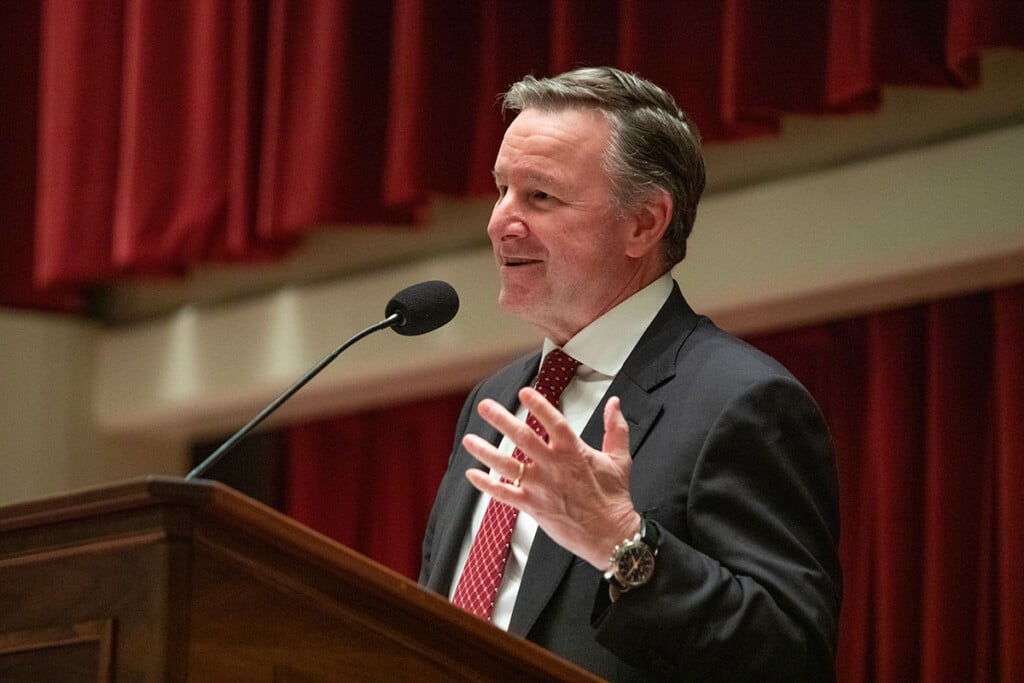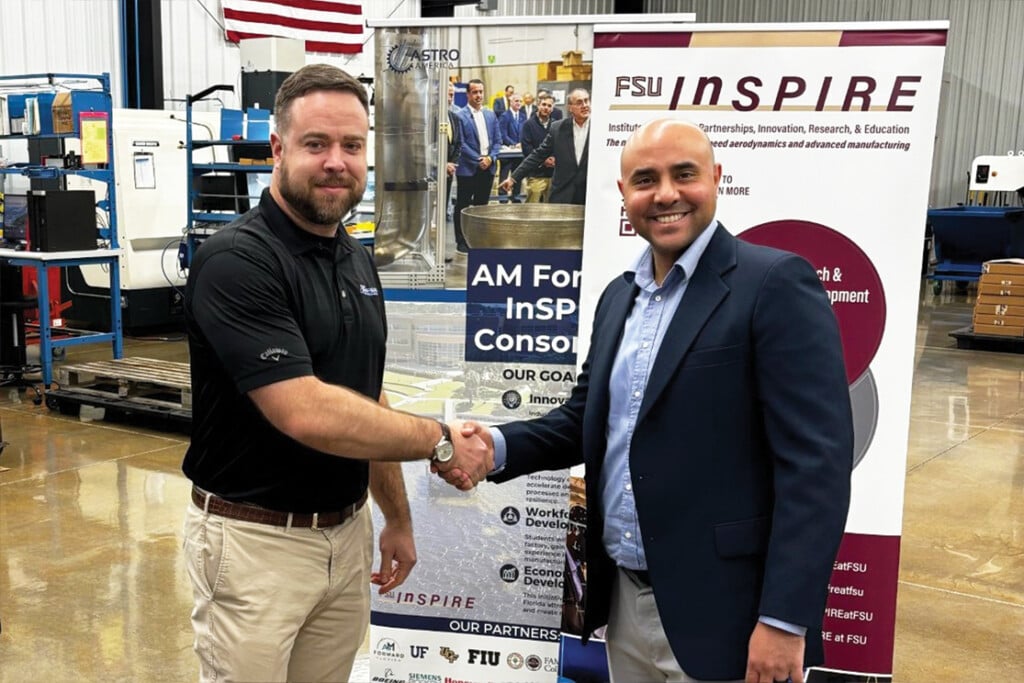Higher Education Embraces Generative AI
Training students today to use the tools of tomorrow’s workforce

Generative AI appeared like a slow-moving tsunami, just a ripple on the horizon that concerned citizens watched with great interest.
GPT-1 (Generative Pre-trained Transformer 1) was released in 2018 and was largely limited in scope, accuracy, and comprehensibility. Those keeping an eye on those waters were not overly concerned until the next year when GPT-2 was released, demonstrating more comprehensible output. With each subsequent iteration, the generated text became less robotic, more human, until 2022; the average reader could not distinguish ChatGPT output from human writing.
And the metaphorical tsunami finally crashed into the masses with all the force of the ocean.
Those who did not see the wave coming were hit hard, but those who have been watching at a safe distance were better prepared for what came next. The LLM (large language models) have continued to improve, changing the landscape of technological jobs forever.
As the initial shockwave created by generative AI ebbs, many colleges and universities started assessing how the shift in technology will necessitate a change to current pedagogy. The use of generative AI is quickly becoming a durable skill, and higher education will need to work hard to equip their graduating classes with the tools necessary to succeed as the demands of industry evolve.
New roles are being created that did not exist when students entered college just a couple of years ago, and some jobs are vanishing altogether. Every industry involving computer science, communications, and technology is reevaluating the efficiency of the roles within their companies. To remain relevant, faculty and staff at universities must evaluate their course content and encourage faculty to utilize generative AI in their curriculum development.
Florida State University
Launched in January 2018, the Innovation Hub at FSU is a multidisciplinary innovation workspace with a $2.5 million investment by the Provost’s Office, led by Sally McRorie at the time. The center provides an environment to facilitate interdisciplinary collaboration and is open to all students, faculty, and staff.
Spanning approximately 14,000 square feet, there is a Digital Fablab equipped with 3D printers, laser and vinyl cutters, and electronics workstations, allowing space for faculty and students to train in robotics and drone technology. Additionally, the Rubini New Media Design Lab, which opened in May 2023, houses 14 high-end computer systems licenses with immersive media tools for UX design and coding.
The hub was launched at the same time generative AI tools were emerging, but the leadership team at FSU had been watching this space for even longer.
“I should stress that universities have been dealing with AI since the 1970s,” explains Dr. Paul Marty, associate vice provost for academic innovation from the School of Information. “It’s like the transition from the internet to the World Wide Web.”
After the web became available in the early ’90s, rather than adopting this new tool, academic institutions opted to use Gopher—an early IP tool utilizing hierarchical organizational menus of text-based content. Many of the arguments against the web at the time centered around a dilution of quality in information, viewing the ease of online publishing as a risk of losing scholarly integrity.
The same resistances exist on college and university campuses across the globe, many instituting tight controls and outright bans on the use of generative AI, naming ChatGPT, specifically. That is not the case at FSU.
“I had been watching this come down the pipeline for two years,” Marty says, discussing how he had been eager to try ChatGPT himself, “and I wasn’t alone in that. Lots of faculty all across this campus and other campuses knew this technology was coming.”
According to Ken Baldauf, founding director of the Innovation Hub, FSU became an early adopter of generative AI, embracing the innovative technology. “We decided that the best place to start is with faculty,” Baldauf says, adding that, “They need to know how to respond in a productive manner, so we started workshops here in the Innovation Hub.
“Within 15 minutes, all 60 seats were taken,” Baldauf recalls. “And then we had people complaining to the provost that we didn’t accommodate all the faculty.”
For their first introduction to ChatGPT, Marty explains, “I only have one rule. We weren’t going to talk about cheating.”
Instead, they took a proactive approach to training faculty on the ethical and proper use of the tools, not just to pass on to their students, but also to help teachers save time.
“We took all of our syllabus information, all of our assignments, all of our readings, etc.,” Marty says, “fed them into Copilot Studio and created a custom GPT using Copilot that could live right in a campus site. So that’s worked great.”
FSU is the first campus in the country to have embedded these agents into Canvas as a tool for students to answer basic questions about the design of the course.
“The way we teach has to keep evolving,” Marty says, explaining how they encourage faculty to show their students best practices in the use of generative AI as a free tutor and building their assignments with the assumption that the students are already using these tools.
Baldauf agrees, adding, “The value now becomes in asking questions.”
Generative AI tools are like having a personal research assistant always available, and the accuracy and quality will continue to improve. And the big question, according to Marty is, “So, after everything is automated, what’s going to be left for humans?”
Marty and Baldauf agree that insight, critical thinking, and creativity are far greater assets in today’s job market, and the new, most sought-after durable skill in industry will be emotional intelligence, being able to work with people, and the aspects of interdisciplinary collaboration, which is the entire reason the Innovation Lab exists.
University of West Florida
With over 13,000 students annually and greater than 70 undergraduate and graduate programs, UWF is the largest college in the Western Panhandle. As a whole, UWF is embracing the new changes in technology.
Dr. Kevin M. Scott, chair and professor of the Department of English in the College of Arts, Social Sciences, and Humanities, has been an early pioneer of incorporating AI into the curriculum at his institution, but some of his faculty were not on board right away.
“I was doing a ton of research on how generative AI was entering into the workforce, reading all of these articles and listening to the people who were actually making it happen in the real world, and I realized that we had been doing our students a disservice,” Scott says, recalling when ChatGPT first hit the market. His faculty “were pretty just dead set against it, and you know, I don’t blame them for that. Their experience had been pretty much entirely one kind of experience.”
Cheating.
Generative AI has increased the scope and volume of students willing to “life hack” for a quick fix to a high-stakes midterm papers worth a huge percentage of their final grades; however, cheating has been a pervasive disease in classrooms as far back as any teacher can remember.
The rapid adoption of generative AI among college students led to panic in those teachers caught unaware. Their fears birthed an industry dedicated to detecting AI-generated frauds and forgeries. Originality.AI, GPTZero, and Copyleaks all have subscription fees for their services with promises to detect the use of generative AI in documents. With an estimated revenue of $2.3 million for Originality.AI in 2025 and as much as $14 million and $16 million for Copyleaks and GPTZero, respectively, it is safe to conclude that cheating—at least in this instance—pays.
These tools have been created specifically to solve the problem of ethical misuse of generative AI. But there is a better way.
“Fortunately,” Scott says, “I have very serious, expansively minded faculty.”
Though ethical use is a very important topic, and conversations about plagiarism and morality should always be included in conversations around intellectual property, Scott and his faculty understand that, “AI is going to transform sections—big sections of the economy.”
Scott repurposed a committee to assess utilization of the new technology, posing one important question: “If students graduate from our program and don’t have a sense of how to make use of generative AI, both practically and ethically, have we served them well?”
The answer was to use a proactive approach to curriculum development. The sentiment, echoed from the FSU Innovation Hub, is to assume that students are already using these tools and that banning them will only hurt students.
“Unethical use of AI is foundationally destructive to the person who uses it,” Scott explains, invoking the notion of Cognitive Debt (see sidebar). “And if you are using AI to circumvent work, then you literally are firing your brain less.
“And that’s precisely why I think it’s important for us to find nonjudgemental ways to incorporate [generative AI] into classes such that students can be asked to be captain of the ship,” Scott elaborates on the importance of handing responsibility for critical thinking, research, and fact-checking over to his students. “Because if they build that in as a foundational skill, they will be focusing precisely on those skills which they’re going to be asked to use in the professional world.”
Though some career fields in mathematics and other sciences may be less impacted, Scott acknowledges that his department and his students will be directly affected by the change in technology, which is why so many of his faculty have been so willing to embrace AI.
“They want what’s best for the students,” Scott says, explaining that academes can be resistant to change but that also, “They’re part of the world and recognize that AI is going to be seismic.”
Gulf Coast State College
GCSC is already well-established as an industry partner, connecting with business leaders along the coast to actively seek and fill skills gaps in industry. Local employers (see sidebar) are participating in lab-based training and cooperative education designed to prepare students for technical careers in related fields.
In addition to traditional studies, students can choose from 24 distinct AS degree pathways designed for direct career entry and can earn several specific AS post-secondary vocational certificates. Health sciences provide pathways to nursing, diagnostic medical sonography, and related medical professions. In technology and engineering, students can specialize in cybersecurity, drone technologies, computer systems, etc. There are also industry-specific vocational tracks, such as accounting, business administration, criminal justice, and the culinary arts.
Being a student-focused institution, when Glen McDonald, president of GCSC, saw AI coming, he understood right away his college would need to adapt. Together with Dr. Holly Kuehner, vice president of academic affairs, they worked with faculty to devise a strategy to address the issue.
In the summer of 2025, they offered training to their faculty, provided by the University of Florida (UF), to give an introduction to AI,
to which there was a good turnout from faculty.
Some educators have been resistant to learning the new technology with many of those more focused on the capacity for unethical use; however, many want to understand AI’s potential in the classroom.
“We’re trying to embrace AI because we know it’s in use, and we want our students to use it, both positively and appropriately,” says
Dr. Jennifer Barber, the respiratory care coordinator at GCSC. Kuehner adds that they are working closely with faculty on implementation.
“We’re talking about it in the classroom,” Kuehner says, “helping students understand good ways to use it,” McDonald adds, “especially in English and writing.”
Similar to the messages from FSU and UWF, faculty at GCSC are making a transition in how they frame assignments to include ethical use of AI for their students.
“If you want to use it for your classwork, use it as a study guide,” McDonald says, discussing how students can benefit from AI in assignments. “Learn what it is, and then write the whole thing in your own words.”
To help students learn proper use of the tools, GCSC contracted David Hatami, EdD to implement a module in AI ethics. Hatami is the founder and managing director of EduPolicy.AI, an educational consultancy specializing in AI policy, ethics, and implementation, who provides training opportunities to make the transition easier.
The overall strategy from GCSC to integrate AI tools into the current curriculum will keep their students engaged and learning the durable skills necessary to succeed in the workforce.
Specifically for McDonald, he wants graduating students to be immediately employable to GCSC’s industry partners, not just today but for the jobs of tomorrow.
Tallahassee State College
While most colleges implementing AI into their curricula do so across all departments, few are offering an undergraduate degree for an AI-focused program. However, in the fall of 2024, TSC officially launched a two-year associate in science degree in Applied Artificial Intelligence, as part of a suite of workforce-focused programs.
“We are actively engaged in conversations with local industry leaders about the evolving role of AI in the workplace and the tools students need to stay competitive,” says Dr. Calandra Stringer, provost and vice president for Academic Affairs. “As part of this effort, we partnered with the Greater Tallahassee Chamber of Commerce to host several community-wide events focused on AI awareness and workforce readiness.”
The goal is to connect business leaders, educators, and the community to strategize best practices for leveraging tools across industries. “The reality is that these tools are impacting all disciplines,” Stringer says. “We recognize our responsibility to help students become digitally responsible citizens,” which includes awareness among faculty and staff on ethical use.
“The college will be working with faculty this semester to design and implement an AI literacy framework to help students learn about generative AI and learn to use it ethically.”
TSC has also taken advantage of the training offered by UF, with several faculty members participating in the specialized training through their AI Learning program.
“Technology is both a tool and a skill,” Stringer explains, “and we know the importance of staying current. Our approach focuses on reinforcing the uniquely human skills, such as critical thinking, creativity, and thoughtful analysis, that remain essential regardless of how technology advances.” A similar methodology is echoed by the other educators throughout Northwest Florida.
However, TSC takes this message a step further by creating a partnership with the Innovation Academy, Florida’s first AI-integrated middle school, where ethical training in AI and technology is embedded through the STEM-focused curriculum. The model uses AI as a teaching assistant, helping educators personalize lessons for individualized instruction.
The charter school serves grades six through eight and is located on the TSC campus inside the University Partners building. Together with their AS degree in AI and college credit certifications, TSC promises to become a leader in AI-driven education.
“These offerings,” Stringer says, “reflect our commitment to staying at the forefront of workforce innovation and preparing students for high-demand careers.”
Industry demands a skilled workforce
“Soft skills” began as a military term, officially defined by the U.S. Army in 1972, to indicate necessary non-technical skills that mostly included communication and decision-making capabilities transferrable across jobs and industries. The term was adopted by education and industry, evolving to include many social and life skills required for management, sales, and customer service.
By the 2000s, globalization and technical expertise became far more important to daily careers. Companies and education rebranded soft skills as durable skills, covering all essential transferable skills, all of which are considered crucial to success in an ever-changing world.
GCSC Industry Partners
→ Engineering Tech: Introductory maintenance technicians with industry partners such as Naval Surface Warfare Center-Manufacturing lab, Maritech, Trane, Oceaneering, Berg Pipe, E.F. San Juan, Eastern Shipbuilding, Rockwell Automation, Haas Automation, Merrick Industries, Central Moloney, and local utility departments
→ Computer Science: Cybersecurity/Networking/ Software and Database Developer-SAIC and other government contractors, Neeves Media web developer
→ Unmanned Vehicles: State and local law enforcement agencies, various government contractors, Customs and Border Patrol, Naval Surface Warfare Center, Military-sponsored Air Show Support, and public works departments
→ Digital Media: Kerrigan Marketing Associates, WJHG-TV, WMBB-TV
Leading AI in FL
Led by Nico Rose, assistant provost and senior director of operations for Teaching and Technology, UF offers a three-day intensive training program for teaching faculty interested in curriculum development utilizing AI tools. The program teaches AI fundamentals, AI ethics, and AI applications in teaching and research.
UF also provides additional workshops and certificate offerings on getting started with AI, harnessing AI tools in the workplace, prompt engineering,
AI image generators, and modules on Microsoft Copilot.
They also offer similar versions for industry/external non-education organizations. The request form is:
pwd.aa.ufl.edu/ai/ai-contract







